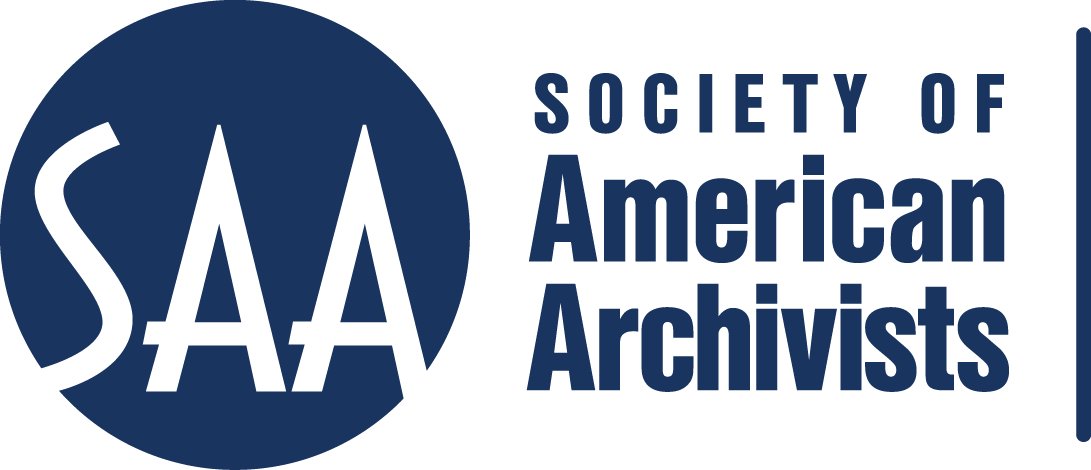The Meaning of Archives
This past year has highlighted how rapidly the archives profession is changing and evolving. Everything from discussions about the importance of community archives to the ever-increasing volume of born-digital records to the place of AI in scholarship and resource description contribute to what we mean when we say “archives.” The reviews in this issue and on the American Archivist Reviews Portal emphasize that dialogue in the field is richer and more expansive than ever before.
We begin with Becky White's review of Minds Alive: Libraries and Archives Now, edited by Patricia A. Demers and Toni Samek. The essays in this collection cover a variety of topics, from digital curation and copyright issues to the enduring values that define information professions, as the authors examine the evolving role of libraries and archives in the digital age. The collection pairs nicely with Archives in the Digital Age: Preservation and the Right to Be Forgotten, written by Abderrazak Mkadmi and reviewed by Josh Hogan, which explores issues of privacy and access in the context of digital archives and preservation.
We feature several reviews that offer practical advice for the profession. Born-Digital Design Records, edited by Samantha Winn and reviewed by Andi Altenbach, discusses the growing volume of born-digital architecture, engineering, and other design records and the technical challenges of preserving them. Archives 101, written by Lois Hamill and reviewed by Christina Wolak, introduces readers to basic archival concepts and best practices, including those relating to digitization and digital exhibits. And while Archives 101 is a good resource for those new to the field, Thriving as a Mid-Career Librarian: Identity, Advocacy, and Pathways, edited by Brandon K. West and Elizabeth Galoozis and reviewed by Caryn Radick, discusses challenges that those who have been in the profession longer may encounter.
The remaining two books reviewed in this issue take a broader look at contemporary archival challenges stemming from prior practices. Disputed Archival Heritage, edited by James Lowry and reviewed by Mpho Ngoepe, discusses disputed or displaced archives—records that colonial powers created about colonized peoples and retained when former colonies gained independence. Essays in this volume delve into the legal and historical contexts of disputed archives as well as potential solutions for managing this shared heritage. Likewise, Dark Archives: A Librarian's Investigation into the Science and History of Books Bound in Human Skin, written by Megan Rosenbloom and reviewed by Alissa Helms, wrestles with legal and ethical issues surrounding the preservation of anthropodermic books (i.e., those bound in human skin).
While the journal continues to feature traditional reviews, a new initiative on the Portal offers readers another option of staying abreast of the newest publications and critical conversations in the field. Microreviews provide the opportunity for reviewers to write short, informal pieces on archives-related resources and for readers to learn about these resources in a quick and easy way. In the first three reviews of this initiative, Bryan Mathison considers the utility of ArchivesSpace for cataloging museum collections; Lily Hunter offers personal reflections on Beyond Accommodation: Creating an Inclusive Workplace for Disabled Library Workers by Jessica Schomberg and Wendy Highby; and Ashley Howdeshell connects gaps in the historical record with papermaking challenges described in Reams in the Desert: Papermaking in Utah, 1849–1893 by Richard L. Saunders. Our goal for the microreviews series is to enable more people to participate in reviews and make their voices heard.
Although there is always new scholarship in the field, we believe that there is value in revisiting past professional literature as well. As announced in our Spring/Summer 2023 issue, the Intergenerational Conversations series reexamines the work of past archives scholars and practitioners through a contemporary lens; we began by focusing on the writings of John Fleckner. Between February and October 2023, seven authors—Vina Begay, Brenna Edwards, Amanda Greenwood, Jennifer Johnson, Jessica C. Neal, Krista B. Sorenson, and Matthew Strandmark—reviewed some of Fleckner's best-known works, from “‘Dear Mary Jane’: Some Reflections on Being an Archivist” to Native American Archives: An Introduction, and reflected on their meaning today. Please visit our Intergenerational Conversations series page for additional installments in this series, and keep an eye out for announcements about the theme of next year's articles set to debut in early 2024.
We hope that readers of American Archivist will continue to engage with reviews as part of the ongoing dialogue about our changing profession. We look forward to another year serving as the journal's reviews editors and remain committed to bringing readers informative and engaging content.
On the Reviews Portal
(Published between March 2023 and October 2023)
Intergenerational Conversations
Begay, Vina. “Tribal Archives is Self-Determination.” Intergenerational Conversations series. August 3, 2023. https://reviews.americanarchivist.org/2023/08/03/tribal-archives-is-self-determination/.
Edwards, Brenna. “Relating through Time, Space, and Smudged Glass: A Reflection on John Fleckner's 2000 Keynote.” Intergenerational Conversations series. June 27, 2023. https://reviews.americanarchivist.org/2023/06/27/relating-through-time-space-and-smudged-glass-a-reflection-on-john-fleckners-2000-keynote/.
Greenwood, Amanda. “Building Bridges between Past and Future: Reflections on John Fleckner's ‘The Paradox of Change and Continuity.’” Intergenerational Conversations series. August 30, 2023. https://reviews.americanarchivist.org/2023/08/30/building-bridges-between-past-and-future-reflections-on-john-fleckners-the-paradox-of-change-and-continuity/.
Johnson, Jennifer. “From Common Practice to Common Goals.” Intergenerational Conversations series. March 27, 2023. https://reviews.americanarchivist.org/2023/03/27/from-common-practice-to-common-goals/.
Neal, Jessica C. “Fleckner Revisited: Reflections on Being an Archivist, Then and Now.” February 22, 2023. https://reviews.americanarchivist.org/2023/02/22/fleckner-revisited-reflections-on-being-an-archivist-then-and-now/.
Sorenson, Krista B. “Meeting the Challenges that Come Our Way.” Intergenerational Conversations series. May 30, 2023. https://reviews.americanarchivist.org/2023/05/30/meeting-the-challenges-that-come-our-way/.
Strandmark, Matthew. “Answering the Call: Archival Literacy and Teaching with Primary Sources.” Intergenerational Conversations series. April 25, 2023. https://reviews.americanarchivist.org/2023/04/25/answering-the-call-archival-literacy-and-teaching-with-primary-sources/.
Microreviews
Buchanan, Rose, and Stephanie Luke. “Microreviews.” July 6, 2023. https://reviews.americanarchivist.org/2023/07/06/microreviews/.
Howdeshell, Ashley. Review of Reams in the Desert: Papermaking in Utah, 1849–1893. https://reviews.americanarchivist.org/2023/07/20/reams-in-the-desert-papermaking-in-utah-1849-1893/.
Hunter, Lily. Review of Beyond Accommodation: Creating an Inclusive Workplace for Disabled Library Workers. June 30, 2023. https://reviews.americanarchivist.org/2023/06/30/beyond-accommodation-creating-an-inclusive-workplace-for-disabled-library-workers/.
Mathison, Bryan. “ArchivesSpace Revisited.” May 15, 2023. https://reviews.americanarchivist.org/2023/05/15/archivesspace-revisited/.

